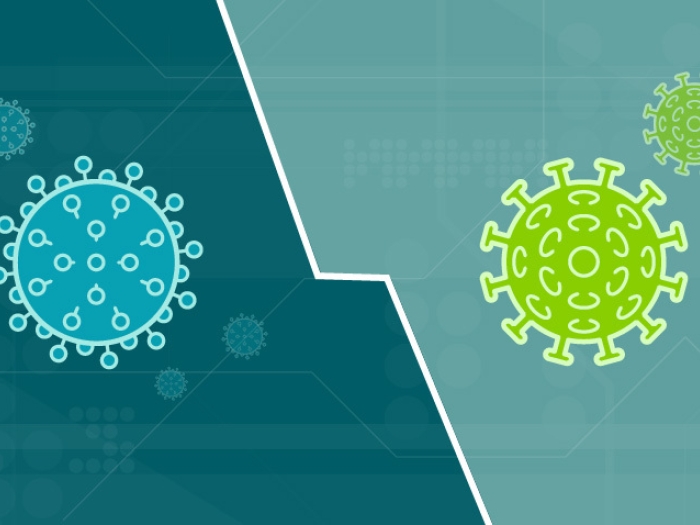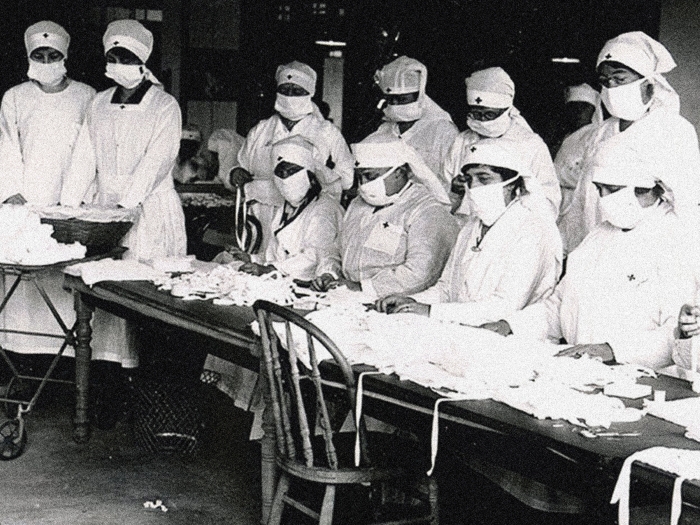As the coronavirus pandemic continues, a new, free course offers tips to search for the best medical information around getting tested, community spread and understanding your risk.
6:55 PM
Author |

Editor's note: Information on the COVID-19 crisis is constantly changing. For the latest numbers and updates, keep checking the CDC's website. For the most up-to-date information from Michigan Medicine, visit the hospital's Coronavirus (COVID-19) webpage.
In the week before Thanksgiving, thousands of people every day were searching for guidelines and advice for a COVID-19-safe Thanksgiving. As we head into the December holidays, how can we best stay on top of the most important advice for keeping ourselves and our families safe?
"Coronavirus has emerged into the world and changed so many aspects of life for people. One of the things we've learned is the importance of information and being able to stay up-to-date on the latest information," says Lawrence An, M.D., associate professor of general medicine at Michigan Medicine and co-director of the Rogel Cancer Center's Center for Health Communications Research.
Coronavirus has emerged into the world and changed so many aspects of life for people.Lawrence An, M.D.
An teamed up with Dan Russell, a senior research scientist at Google, to create a short online course called Coronavirus Powersearching. The free lessons offer tips to craft the most effective search and get the best, most relevant information.
LISTEN UP: Add the new Michigan Medicine News Break to your Alexa-enabled device, or subscribe to our daily updates on iTunes, Google Play and Stitcher.
"My entire career has been about trying to help people find information and more importantly, use that information effectively," Russell says.
The class not only teaches you how to frame your medical search query accurately in your Google search, but also introduces ways to limit the search results to populate only the latest medical articles from the past week, month or year. It also shows users how to collect correct information from a variety of different medical websites to compare information.
Another tactic focuses on searching for information relevant to your specific community environment, like the best times to visit grocery stores and shops in your neighborhood to minimize your potential exposure to the coronavirus.
The course includes five lessons focused on five specific topics:
-
Do I have coronavirus?
-
Who is at risk of serious illness?
-
How is coronavirus spread?
-
How much coronavirus is in my community?
-
Living in a world with coronavirus
"Many people are doing the right thing during the pandemic, making difficult choices to keep themselves and their families safe," An says. "There are simple tricks and tweaks when searching the internet for medical information that will help you get more accurate and reliable information."
Here are a few overall strategies and tactics An and Russell advise using when searching for medical information on your own:
-
How you frame your query matters. Use the simplest possible language. Adding as many specific terms as you can will also help you find what you want.
-
Click through to the pages – don't just rely on the short snippet that appears on the search page. Summaries may provide an overview, but clicking through will lead you to more detailed information, which may be a critical difference. "It's on you to go deeper and find the answers you need to questions," An says.
-
Understand the source of the information and quality. Not every populated web page in your search is created equal. Look at who the source is and consider the quality and reliability of that source is.
-
Consider when the information was published. Coronavirus information changes quickly and medical recommendations are continuously evolving. Make sure you're reading the latest facts by ensuring the article was newly published or very recently updated.
MORE FROM MICHIGAN: Sign up for our weekly newsletter
For more information on the free, two week course, visit the Coronavirus Powersearching course homepage.

Explore a variety of health care news & stories by visiting the Health Lab home page for more articles.

Department of Communication at Michigan Medicine
Want top health & research news weekly? Sign up for Health Lab’s newsletters today!





